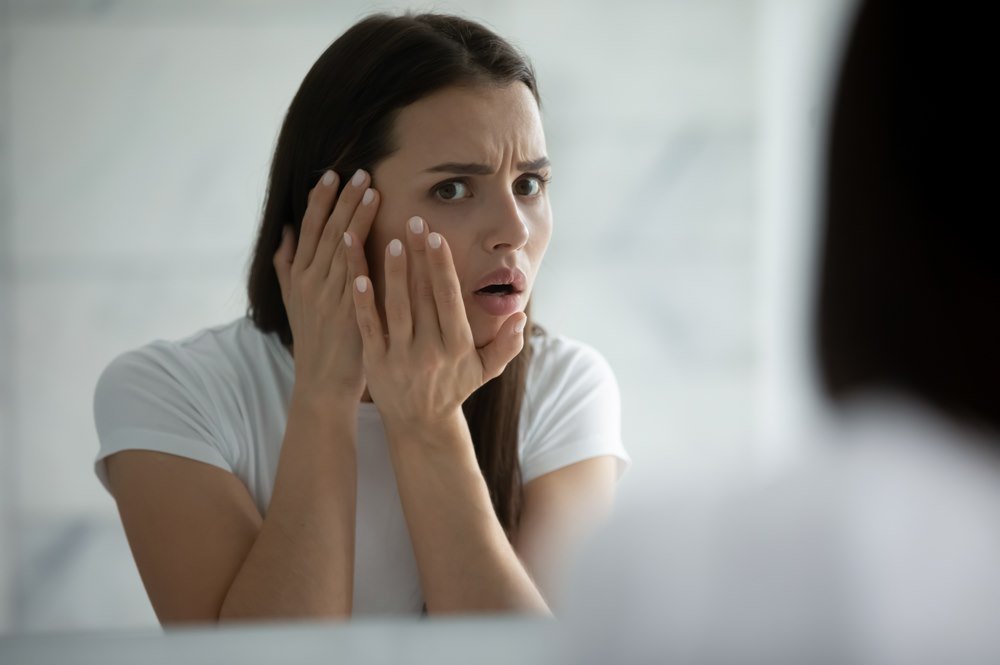Acne and mental health symptoms

Acne goes deeper than the skin condition. There has been frequent research on the grounds of mental disturbance owing to acne. The results of such researches point out that psychological symptoms are not correlated with age, sex, or severity of acne. It can affect personality development and also have its impact on social and learning spheres. Peer pressure and sense of non-conformity to social standards of perfection, precipitate fears to an extent that can cause social phobia. [3]
- Anxiety and depression: A study conducted to assess the prevalence of mental health issues in acne patients, shows a prevalence of anxiety to be 68.3%, which stands in sharp contrast to the rates assessed in the control group of the study.
- Frustration: Acne is hard to get rid of. With countless beauty products in the market, which proclaim to eradicate acne, the patients find themselves frustrated when numerous strategies come to no avail.
- Self-hate: The skin condition in acne is far from the beauty standards set by the influencers on social networking websites. A constant comparison of self with the fake beauty posters makes the patient vulnerable to develop self-hate. There is a decreased sense of owning oneself and increased self-doubt of not conforming to the standard.
- Poor self-esteem: Constant taunts by the public and belittling of the condition in beauty advertisements further adds to the mental health trauma. The patient does not feel confident about their presentation. They have a sense of being unattractive, which can further lead to a lost sense of self-worth. An increased sense of being judged by the friends and family aggravates the condition.
- Self-imposed introversion: Acne catches most adolescents in the prime time of social, physical and mental development. A young patient who is not confident about themselves will have a constant fear of peer unacceptance and will eventually tend to avoid social gatherings, or any activity that brings general attention to their acne. Participation in all such events will be met with the condition to conceal acne. Shyness becomes a part of personality.
- Poor social life: Morphing acne and other skin conditions into a stigma and the general dislike that surrounds this term, makes the patient refractory to social events. It also hampers their chance to find suitable work environments, and impairs learning experience in students. Fear of depreciation and mocking lies at the heart of this problem.
- Suicidal thoughts: Another study [4] reports that 12.9% of patients had suicidal thoughts. Decreased quality of life with poor self-esteem and a sense of worthlessness contributes to such thought process.
- Behavioral changes: Certain behavioral patterns are observed in adolescents. Girls tend to cover their face with hair to make acne less noticeable. Makeup use is aimed at concealing the spotted skin. Social avoidance is another associated occurrence.
- Body dysmorphic disorder: A study [5] reports 14- 21% occurrence of BDD symptoms in the setting of acne. It is a psychiatric disorder characterized by obsession with a minor or subclinical condition. Excessive worrying becomes complicated to the extent that minor flaws that are overlooked by the people are perceived as serious concerns by the patient themselves
